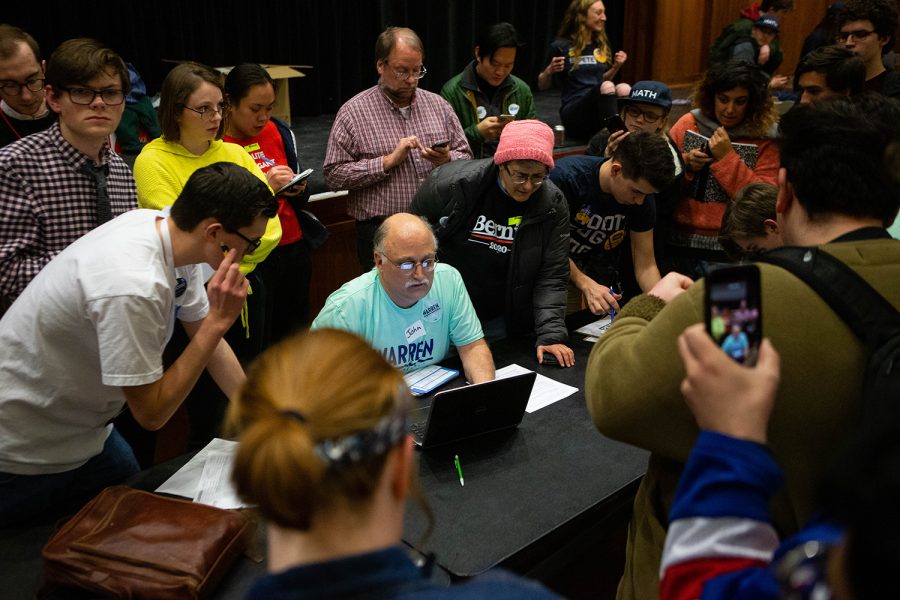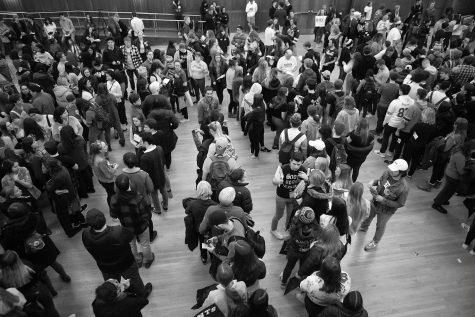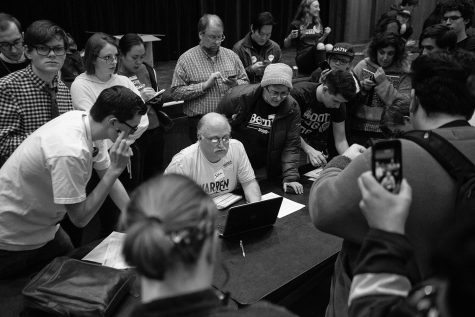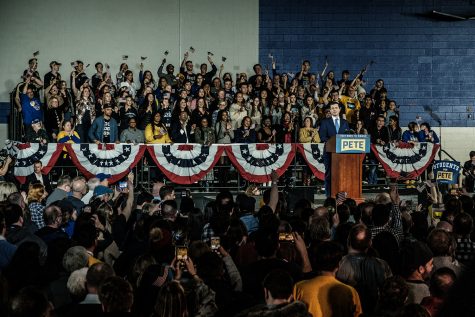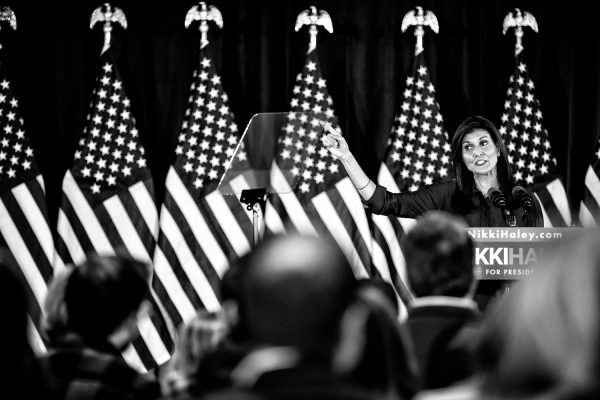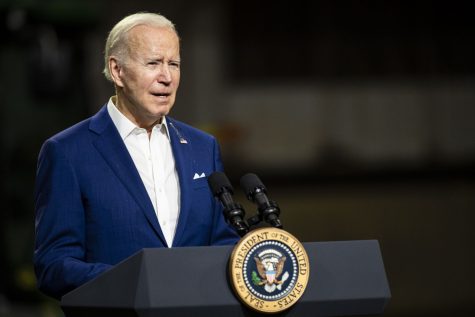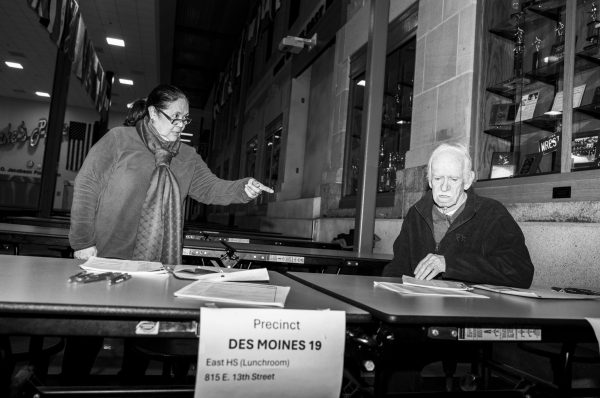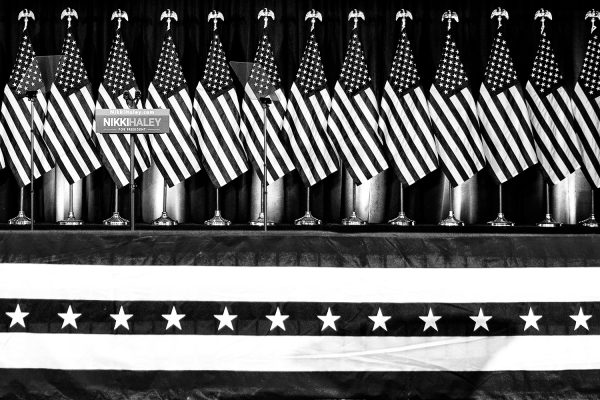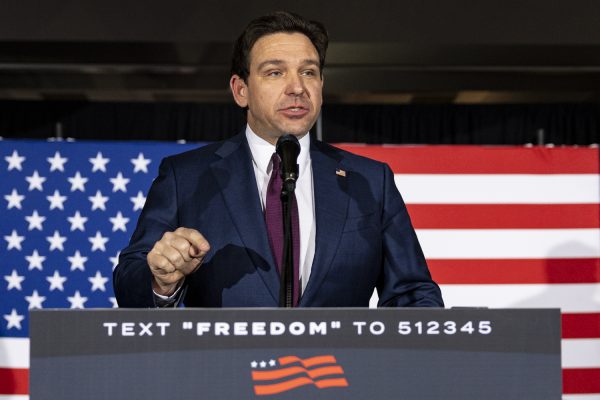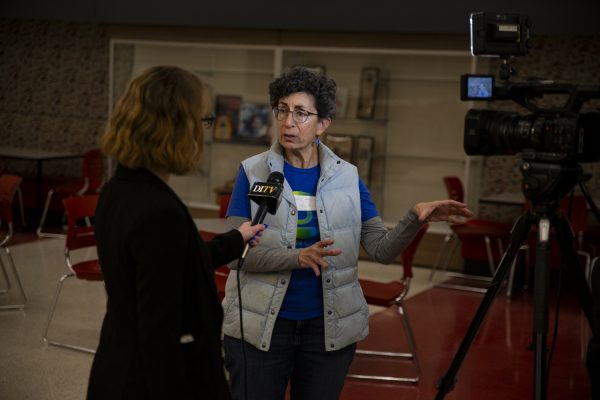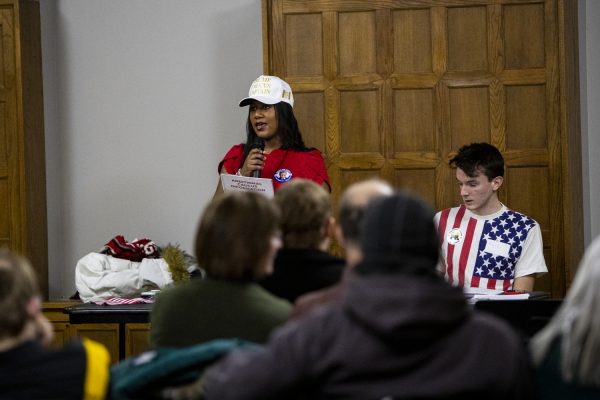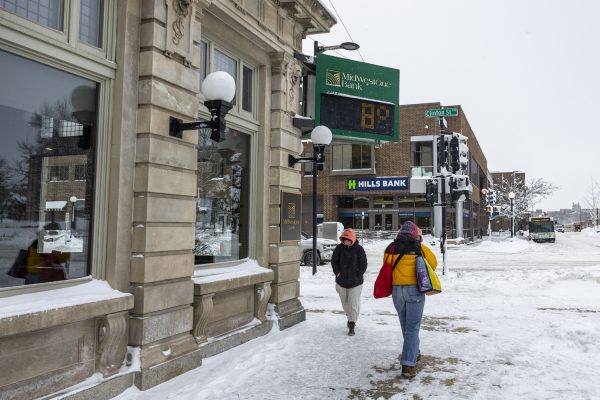Some fear raucous Iowa Democratic caucuses will threaten first-in-the-nation status
Failures to report caucus results Monday night added new energy to critics calling for a change in the system and left many questioning the first-in-the-nation status of the Iowa caucuses.
John Deeth, volunteer from Johnson County Democrats, recounts before assigning delegates during the caucus at the Iowa Memorial Union on Monday February 3, 2020.
February 4, 2020
After a night of confusion and uncertainty, the results of the 2020 Iowa caucuses had yet to be announced as dawn broke Tuesday, leading some to renew skepticism of Iowa’s future as the first-in-the-nation presidential-nominating contest.
As the chaos unfolded across national TV, social networks, and local-media outlets, critics sounded the death knell of Iowa’s decades-old tradition. The political world still roiled Tuesday over delayed Iowa caucus results and possible compromised reporting-process integrity.
University of Iowa political-science Professor Frederick Boehmke said the caucuses have been under intense criticism for years, but Monday’s events added new energy to the calls for changes to the process. Critics of the caucuses have said they are inaccessible, discourage participation, and are not reflective of the national Democratic Party.
“I think it places Iowa’s status as first in the nation in further jeopardy,” Boehmke said. “It was already under pressure after 2016, and before that.”
While accessibility and participation have long been concerns, the transparency of the caucuses was attacked in 2016 after Sen. Bernie Sanders, I-Vt., narrowly lost to former Secretary of State Hillary Clinton. Discrepancies between caucus results and delegate appropriation were reported at several precincts, and Sanders supporters accused the party of being biased toward Clinton.
Kurt Meyer, the chair of the TriCounty Democrats in northeast Iowa, said if Iowa loses its first-in-the-nation status over Monday’s events, it will likely transition to a primary. A primary is more open and inclusive, he said, and the caucuses are unnecessary if they don’t have the unique position they occupy now.
Meyer said he would like to see Iowa keep its caucuses if it remains first, but he’d prefer to switch to a primary if Iowa is no longer first in the nominating process.
“One of the reasons that we have clung tenaciously to the caucus is because it meant that we were first in the nation,” he said. “And that gave us a remarkable amount of attention and press, national and international… If we lose first-in-the-nation status, I suspect there’s going to be increased pressure to go to a primary.”
Troy Price asked whether this damages the chances that the Iowa Caucus will remain first: “This is a conversation that happens every four years, there’s no doubt that conversation will happen again” pic.twitter.com/tCDRgqZXh2
— Iowa Starting Line (@IAStartingLine) February 4, 2020
The three Democratic U.S. representatives from Iowa — Dave Loebsack, Cindy Axne, and Abby Finkenauer — released a joint statement Tuesday criticizing the handling of the situation.
“For almost half a century, candidates for the highest office in the land have come to Iowa to present their visions for America to Independents, Republicans and Democrats alike… We know how important it is that our constituents came together last night to participate in what should be a trustworthy and efficient process, and this deserves to be done right,” the statement said.
In an email from Loebsack Communications Director Joe Hand, Loebsack was quoted saying he supports keeping Iowa as the first nominating contest, but he encouraged an investigation into why the results were delayed.
President Trump tweeted Tuesday sympathetic to the state of Iowa, but pointing fingers at Democrats for the bungled results reporting.
It is not the fault of Iowa, it is the Do Nothing Democrats fault. As long as I am President, Iowa will stay where it is. Important tradition! https://t.co/bX3FLvua1C
— Donald J. Trump (@realDonaldTrump) February 4, 2020
Some critics of the caucus process Monday night included Democratic presidential hopeful Andrew Yang and former candidate Julián Castro, who now is endorsing Sen. Elizabeth Warren, D-Mass.
It might be helpful to have a President and government that understand technology so this sort of thing doesn’t happen.
— Andrew Yang🧢⬆️🇺🇸 (@AndrewYang) February 4, 2020
This is a total mess. I respect the people of Iowa, they’ve been great—but it’s become very clear that our democracy has been misserved by a broken system. #IACaucus
— Julián Castro (@JulianCastro) February 4, 2020
Changing Iowa’s status could have an impact on Iowa’s economy as well. NBC News reported in January that the caucuses were expected to bring in $11.3 million in economic activity for the city of Des Moines in the week ahead of the caucuses.
Hotels, restaurants, and other local businesses all see a boost during caucus season, said David Redlawsk, the University of Delaware Political Science and International Relations Department chair. Redlawsk studies the Iowa caucuses and wrote a book called Why Iowa? on their history.
Campaigns also flood the state with advertising, Redlawsk said, which provides a big influx of cash to local TV and radio stations.
According to a FiveThirtyEight project tracking TV advertising in each state, ad buys in Iowa media markets have reached $48.8 million as of Tuesday, the highest of any state.
“Obviously if Iowa were not first, I’m pretty sure none of that would be happening,” Redlawsk said. “… I’m not sure the magnitude, but certainly it would have some effect as well, if they weren’t here spending the money.”



